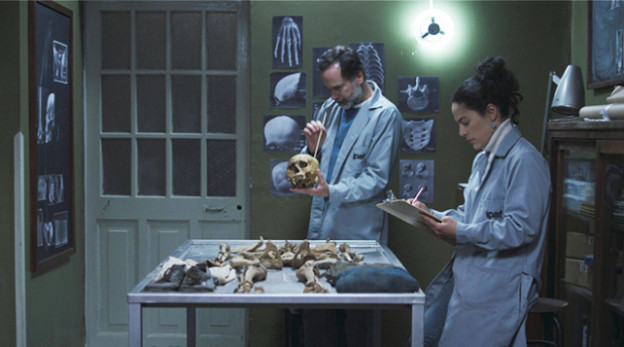Find the full lineup for the Vancouver Latin American Film Festival here.
Final Showtime of NN:
5:00pm, Saturday September 12th
Goldcorp Center for Arts, SFU Woodward’s
This Peruvian film, written and directed by Héctor Gálvez, opens with a spectacular shot of the Andes Mountains, with a forensic team digging for bodies of the disappeared. The film centres on an unexpected and unidentified body – NN means “Non Nomine”, the designation given to bodies that cannot be identified – and the search to determine who the man was.
This visually and thematically stunning film asks many questions and provides few answers, and is not so much a tear-jerker as one that leaves a hole in one’s heart. The time-consuming and monotonous tasks of the forensic team, the sparse dialogue and the slow pace of the film create a sense of how mundane and lengthy the processes of identification are. It also demonstrates to the audience the recurring violence and slow suffering of the identification process itself, for both family and forensic team. While the story clearly follows Fidel as the main character, the film feels almost out of focus. We learn about Fidel only through snippets of scenes, bits of conversation. Gálvez directs our attention to objects – pieces of clothing, boxes or bone – rather than the characters. Through this, he mirrors the detachment from the horrors of exhuming and identifying the disappeared that Fidel struggles with throughout the film, as well as his depression.
What surprised me most about the film was how apolitical it was. While it is estimated that Peru has 15,000 people who were disappeared in the 1980s, the focus on Fidel gives us very little sense of the scale of the conflict. Only through seeing how the records and evidence are treated by the government do we begin to place the story within larger structural issues, though to a Peruvian audience much more subtle social commentary may be apparent.
Perhaps that’s the point. It is easy to quote numbers of people who were disappeared, who are now being identified, but much harder to tell the personal stories of a son who never knew his father, of a widow who seeks closure, thinking she may have found her husband for the fourth time, of a forensic team member struggling with the question: what role must truth play in being compassionate, finding healing, and giving closure?
Anne Kessler is a 6th year human geography student.




